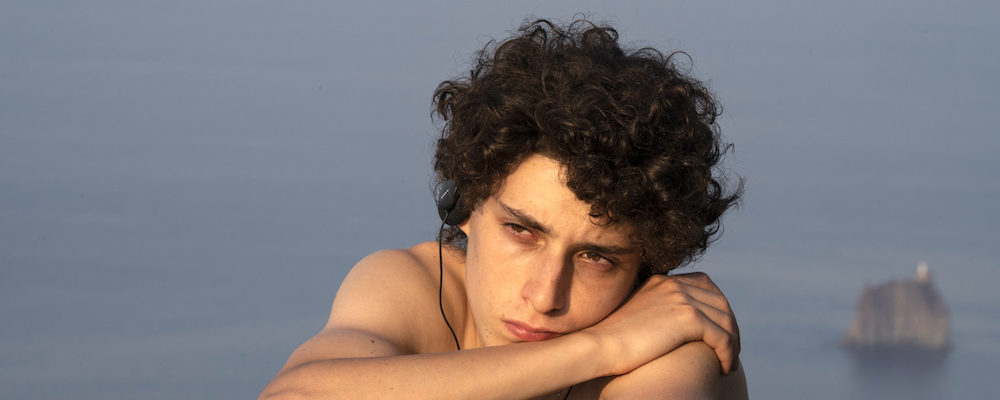‘The Hand of God’ Brings Director Paolo Sorrentino’s Youth to Sensuous Life
Alci Rengifo
Italy’s Paolo Sorrentino now joins the growing rank of major directors who are increasingly turning their cameras on themselves. Filmmakers of the boomer and Gen X variety are becoming more introspective, leaving behind a unique body of work that attempts to chart the course of their lives and careers. Sorrentino’s “The Hand of God” is both familiar and uniquely his. It features his colorful, at times indulgent style, and also a particular intimacy driven by a less kinetic pace. There is not a definite plot because life itself isn’t scripted. With a free form feel, coupled with a sensuous environment, Sorrentino achieves something rather special. Because the movie essentially defines his personality, we can see much more clearly where the filmmaker came from.
The setting is Naples in the 1980s. Fabietto Schisa (Filippo Scotti) is a young college student belonging to a cheerfully offbeat family. His parents, Saverio (Toni Servillo) and Maria (Teresa Saponangelo), seem happily married with mischievous fervor. A get together with everyone else can involve cruel jokes, gossip and dips in the ocean. Although majoring in the classics, Fabietto’s mind truly orbits around his raging hormones and a growing interest in filmmaking, which is instantly kindled when brother Marchino (Marlon Joubert) auditions to be an extra in Federico Fellini’s new movie. Two other obsessions dominating his mind are a devotion to Argentine soccer god Maradona and his voluptuous aunt Patrizia (Luisa Ranieri), who is cursed to suffer the jealous rages of her husband Franco (Massimiliano Gallo). With no friends and feeling adrift, Fabietto wonders how to reach his growing dream. Then life happens and tragedy shakes determination into him.
When directors make an autobiographical work, the best ones can mark a particular change of pace. Pedro Almodovar did it best in his recent “Pain and Glory.” The tradition of course goes back to directors like Ingmar Bergman and Fellini. Sorrentino has been famous for his feverish visual edge and playful surrealism. His best film remains 2013’s Oscar-winning “The Great Beauty,” starring Toni Servillo in a great role as a jaded writer wandering through Italy’s shallow, hard-partying upper class. Sorrentino’s other work also tears at the elites and power players, including his underappreciated “Loro,” a debauched portrait of former prime minister Silvio Berlusconi and an HBO show, “The Young Pope,” where the Vatican is as cutthroat as Capitol Hill. Even when bordering on the self-indulgent, Sorrentino is dynamic in an age of cookie cutter movies. “The Hand of God” has a different kind of sensuousness. It’s a more accessible, smaller film, where Sorrentino leaves the corridors of power for working class Naples. In “Loro” and “The Great Beauty,” Toni Servillo commands status while here he’s a middle-aged, self-described communist who refuses to buy a remote control for the TV. The soundtrack is surprisingly tame, with none of the usual cliché needle drops used for forced nostalgia in other movies.
But what is “The Hand of God” about? Because it is composed of memories and moments, it is about many things. It is also, above all, about the people in Sorrentino’s mental scrapbook. The title itself is one of Maradona’s nicknames, cemented during his legendary goals in the 1986 Argentina vs England World Cup game. No soccer who lived it ever forgot it. Sorrentino also differs from recent films like Alfonso Cuaron’s “Roma” or Kenneth Branagh’s “Belfast” by defying conventional narrative. We feel invited into the world of the Schisa family in the first half, watching as they dine and giggle at the large aunt who curses while munching on a big snack, or roll their eyes when Fabietto swears he saw Maradona in the flesh driving through Naples. It is never a bore because Sorrentino turns the personalities at play into wonderful details in themselves, like the much older fiancé of a cousin, who speaks with an electronic voice box. Maria is a ceaseless prankster who is a gift and a curse in being the kind of mother who never inspires her son to want to leave. Meanwhile sex is ever present as a natural feeling, especially in those intense youthful days when we can only imagine it. When Patrizia suns herself naked on a boat for all to see, or when she slips out of her dress on a night when the family rushes to her aid after another beating by Franco, Sorrentino isn’t being crass. He’s evoking a young man’s first brushes with real desire, with all of its curiosity and fear.
The second half is where “The Hand of God” truly flies. A tragedy strikes deep into the family and Fabietto is forced to consider how choosing a path in life always requires both determination and a particular kind of seriousness. What this means is that even the most bohemian artist takes their craft to heart. The greatest scene in the film comes when Fabietto bumps into a respected Italian director after a hilarious scene involving an aspiring actress bombing onstage. A walk that lasts until dawn is the real beginning of Fabietto’s journey, as the director, so full of life and rage, tells him that it isn’t enough to just want to make a movie. You must have something to say. What Fabietto will turn into art has always surrounded him, from the pain of loss to a wonderful moment where he visits Patrizia at an asylum and in just enough words, confesses she has always been his muse. Another scene finds Fabietto riding on a scooter with a smuggler through Naples at night, taking in the air before improvising a boat trip to Capri. Such a moment makes for a great memory, the kind that will linger with the person who experiences it and then years later will be the director making this movie. Maybe more auteurs should continue sharing their roots.
“The Hand of God” begins streaming Dec. 15 on Netflix.

